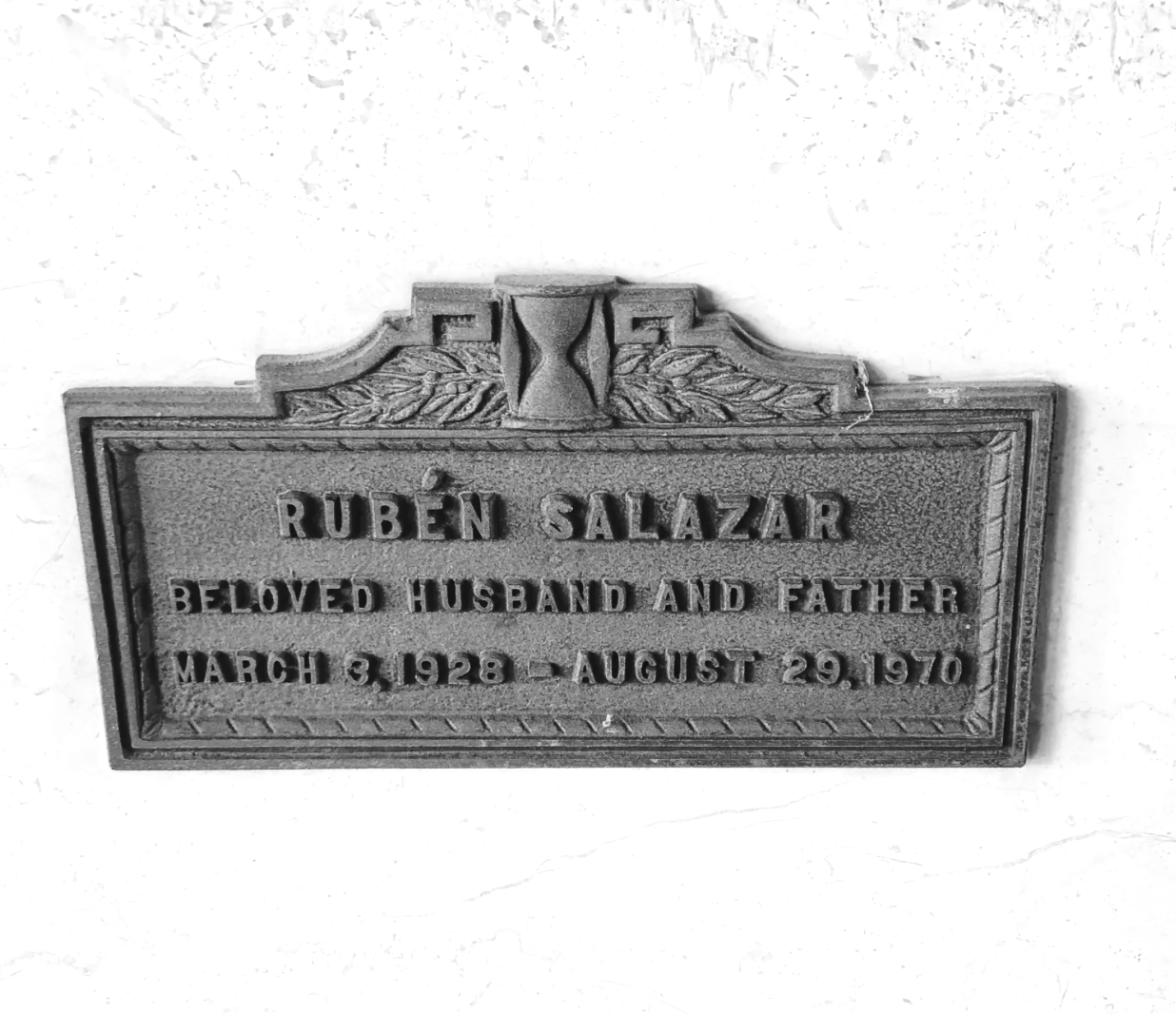Content:

Slain L.A. Times columnist Ruben Salazar matters more than ever, 55 years later
L.A. Times
08/29/2025
Exactly 55 years ago, Salazar was killed in an East Los Angeles bar by a tear gas canister launched by an L.A. County sheriff’s deputy that tore through his head. He was one of three people who died that day during the Chicano Moratorium, a rally against the Vietnam War that out-of-control cops turned into a melee.
Salazar was only eight months into his columnist gig. He was a well-respected Times veteran who had done stints covering immigration, as a foreign correspondent and Metro reporter for the paper. Once he got a Friday slot on the op-ed page at the start of 1970, the journalist became a must-read chronicler of the Chicano experience.
Every time my Times colleagues report from a protest, I invoke Salazar’s name in my prayers to God that He watch over them. Our profession faces existential threats — and I’m not just talking finances.
The Trump administration has pursued scorched-earth campaigns against news organizations it doesn’t like with lawsuits and funding cuts, while limiting access to mainstream reporters in favor of sycophantic press coverage. Journalists have suffered injuries at the hands of LAPD officers while covering this summer’s anti-migra protests, from being struck with less-lethal projectiles to getting smacked with batons.
The climate against my profession is so ugly that the L.A. County Board of Supervisors unanimously passed a motion this month requiring the Sheriff’s Department to send them a report about what training, if any, deputies receive on allowing reporters to do their jobs during protests. Supervisor Hilda Solis, who authored the motion, cited Salazar as an impetus, calling his killing “one of the most painful chapters in Los Angeles County history.”
She also described him as “a crucial voice for the Latino community, dedicated to covering stories that mainstream outlets often ignored” — a legacy that all Latino reporters at The Times must try and live up to. So every time I open my laptop to start my next columna, I ask myself:
What would Ruben write?
That Salazar died in the course of doing his job has sadly eclipsed what he actually wrote, so I always encourage people to read his columns. The Times republished them online for the 50th anniversary of his death, so there’s no excuse not to familiarize yourself with his work. It would have seamlessly fit into this hell year — the 1970 in his columnas reads eerily similar to what we’re going through right now.